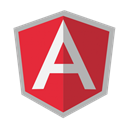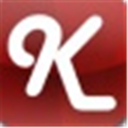Unlocking Your Web Development Potential: Top Lego Alternatives
Lego, described as ? Web-components made lightweight and a NodeJS tool for building ? fast, ?? reactive, ? native web-component bricks, offers an intriguing approach to web development. It leverages HTML and CSS components within HTML files, transforming them into Brick classes for direct browser execution. While innovative, developers often seek Lego alternatives that align more closely with their specific project requirements, existing tech stacks, or desired levels of flexibility and community support. This guide explores some of the most compelling alternatives that offer different philosophies and feature sets for crafting modern web interfaces.
Top Lego Alternatives
When considering alternatives to Lego, it's crucial to look at options that provide robust solutions for component-based development, intuitive data handling, and strong community backing. Here are some of the leading contenders in the web development ecosystem.

Vue.js
Vue.js is an intuitive, fast, and composable MVVM framework ideal for building interactive interfaces. As a Free, Open Source, and Self-Hosted platform, it's a strong Lego alternative, boasting features like extensibility by plugins/extensions and two-way data-binding, making it highly flexible for dynamic web applications.

AngularJS
AngularJS extends HTML to declare dynamic views in web applications, making it a powerful Lego alternative for complex projects. It's Free and Open Source, available across Mac, Windows, Linux, and Web platforms, and includes features like built-in routing and comprehensive developer tools, suitable for enterprise-level web development.

React
React, a JavaScript library by Facebook for building user interfaces, offers a declarative approach to creating interactive UIs. As a Free and Open Source solution for Mac, Windows, Linux, and Web, it's a popular Lego alternative known for its Virtual DOM, modular system, and robust developer tools, providing a highly efficient way to manage UI state.

Polymer
Polymer is a library that utilizes the latest web technologies to create custom HTML elements, making it a direct Lego alternative in terms of web component philosophy. It's Free and Open Source, available for Mac, Windows, and Linux, and offers strong developer tools for building anything from small components to complete applications.

ember.js
Ember.js allows developers to write less code with its integrated Handlebars templates that automatically update with data changes. This Free and Open Source framework for Web and JavaScript provides a structured approach, often preferred as a Lego alternative for large-scale applications requiring conventions over configuration.

RiotJS
RiotJS is a simple and elegant component-based UI library, similar in spirit to Lego's focus on lightweight web components. It's Free and Open Source, designed for the Web, and offers custom tags, enjoyable syntax, an elegant API, and a tiny footprint (~10KB), making it an excellent choice for projects prioritizing performance and simplicity.

Svelte
Svelte is a compiler-based component framework that generates efficient code to surgically update the DOM. This Free, Open Source, and Self-Hosted platform stands out as a strong Lego alternative by shifting work from the browser to the compile step, resulting in smaller-footprint bundles and excellent runtime performance, complete with developer tools for web development.

Aurelia
Aurelia is a JavaScript client framework that leverages simple conventions to empower creativity in web development. As a Free and Open Source platform available on Mac, Windows, Linux, and Web, it offers a modern, comprehensive solution that could serve as a robust Lego alternative, especially for developers who appreciate strong conventions and extensibility.

KnockoutJS
KnockoutJS is a JavaScript library that facilitates the creation of rich, responsive display and editor user interfaces with a clean underlying data model. This Free and Open Source solution for Mac, Windows, and Linux provides robust developer tools and is an excellent Lego alternative for projects focused on MVVM (Model-View-ViewModel) patterns and dynamic UI updates.

Backbone.js
Backbone.js provides structure to JavaScript-heavy applications through models with key-value binding and custom events, and collections with a rich API. As a Free and Open Source web solution, it offers a more minimalist approach compared to full-fledged frameworks, serving as a suitable Lego alternative for those who prefer more control and less opinionated solutions in their web development.
The landscape of web development offers a diverse array of tools beyond Lego, each with its unique strengths and community support. Whether you prioritize simplicity, a rich feature set, a large ecosystem, or specific architectural patterns, there’s an ideal solution waiting to be discovered. We encourage you to explore these Lego alternatives further to find the best fit for your next project, ensuring your web components are not just built, but built to last.